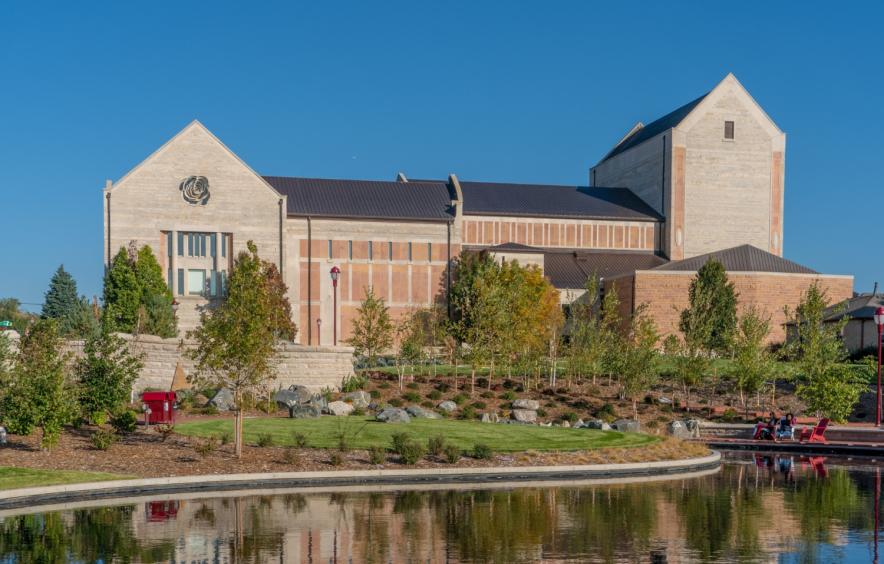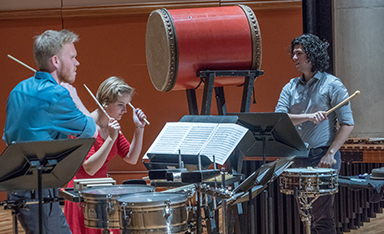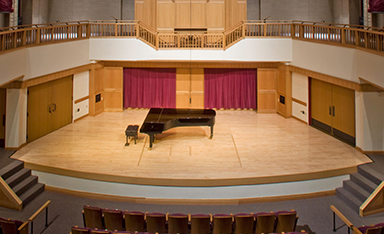The Bachelor of Arts in Applied Music is designed for students who are serious about their musical growth and eager to explore a broad academic experience. This degree offers the opportunity to refine your musicianship under the mentorship of our distinguished faculty, while engaging with a wide range of disciplines across the University.
You will immerse yourself in a rigorous music curriculum including private lessons in either performance or composition, ensembles, and academic music courses while also pursuing a second major or minor in another area of study. This unique balance fosters both artistic depth and intellectual breadth, preparing you for diverse career paths within and beyond the field of music. This major is a great fit for any undergraduate student who wants to double major.
As you progress, you’ll build essential skills such as judgement, collaboration, creativity, and emotional intelligence — qualities that are vital to success in a broad variety of careers. Whether your goals lie in performance, education, composition, arts leadership, or a field outside of music, this major offers the flexibility and support to shape your own path.
About the Program
Audition & Portfolio Requirements
Applicants must successfully complete an audition or have portfolio materials reviewed before being offered admission to the Lamont School of Music.
Admitted students must begin their studies in the fall quarter. New or transfer students normally may not enroll mid-year.
Please choose your area of study from the list below for additional audition/portfolio information.
Degree Requirements
Students will complete classes in their chosen area of study as well as theory and musicology classes. In addition, students will need to fulfill requirements for piano proficiency, music technology, convocation attendance and a culminating project. Piano proficiency should be completed by the end of sophomore year. Students will audition for and participate in one ensemble per quarter, as assigned, at least six quarters of which must be an appropriate major ensemble.
For more information see the Undergraduate Bulletin.





